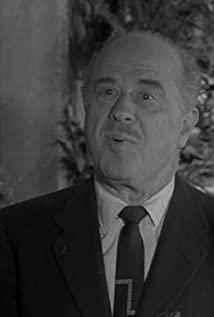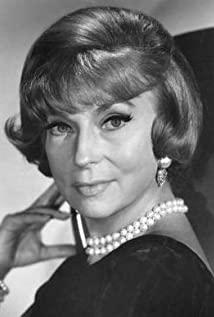Watching American stories in the 1950s and 1960s is like watching posters, with rich colors and gorgeous costumes, and the makeup is even more delicate to almost harsh, mixing with the aristocratic atmosphere that has not yet been annihilated and the vigor of new power. In the Oscars Best Picture, from the 24th "An American in Paris" to the 41st "Orphan in the Fog" in the many color films, everyone seems to be doing their best to boldly use color, in the song and dance film In the background, I also feel that it is seamless, fresh and interesting, and it looks like a bedtime story when placed in a normal feature film.
The translation of the name of this film is very beautiful. In "Deep Locked in the Spring and a Sorrow", the beauty of this strong color style makes the film as beautiful as an oil painting-style revolving lantern. Light is also a good color partner. Even though the love between the gardener and the wealthy widow in the film seems bold, in fact, most of the time people deliberately suppress and hide their inner passions: when the widow is alone at home, the living room and corridor are open. The light in the bedroom is completely dark. This not only reflects the loneliness and coldness of her heart, but also highlights her incompatibility with most people in the small town; when she and the gardener are discussing the future in the wooden house, because of the strong and warm The light makes them more like a black silhouette for the audience. At this time, she is no longer shrouded in darkness and does not need to show deadly beauty in the dark.
The story of the film is very simple. A wealthy widow and her gardener fall in love. The gardener’s friends welcome the elegant and charming widow, but the widow’s friends, neighbors, children, and everyone in her living class oppose them. The pressure to fall in love is increasing day by day, and finally the relationship collapses after the widow’s son ran away from home and the daughter was ridiculed at school, and how can she continue her life in the future.
The harshness of widows is the invisible torture of women in the patriarchal world throughout the ages. After denying their personal freedom, sexual freedom, and freedom of thought, they even forcefully preserved the reputation of dead men by burial. The so-called steadfastness not only denies women the same right to enjoy sex in theory, but also denies women's demand for sex, and directly degrades women as a tool for men to enjoy pleasure. Under the suppression of such unhealthy concepts, old widows often become male accomplices, transmitting their distorted concept of women’s life to the next generation. In "Moon River", the widow is responsible for the death of her husband and stays in the widow’s house for life; China has a chastity archway, where inexplicable collective carnivals impose their will on irrelevant people; the erudite daughter in the film does not approve of the widow’s being Being forced to be a widow, otherwise it would be as backward and shameless as the Egyptian wife must be sacrificed to her husband. In contrast, men sing the loyal love of widows, as if the widow’s desire and soul can only die with her husband, and live as a walking dead archway to preserve the face of men in the world. What’s peculiar is that usually the stronger men are, the more they can’t control their little brothers. They never believe that the steadfast love of the unity of body and mind can only belong to one person. There was a scandal of incest with his daughter-in-law.
In addition to the perverted onlookers of widows in the entire public opinion environment, women's role playing in marriage and her relationship with her children are also the focus of attention. In order to save the heart of the son who ran away from home, and to prevent her daughter from being pointed when she was in love, the widow chose to break up with the gardener. Her frustration, depression, and loneliness have become a disease in her heart, causing her to be healthy and suffering from headaches. Friends are still holding parties, sons are still not going home, daughters are quickly married, and the widow’s heart-piercing pain has not been exchanged for anyone’s understanding and sympathy. On the contrary, they think that only her loneliness is worthy of praise, as if Only when the widows have no desires and desires can they extend their sex life for one minute.
When the son who had not been going home for a long time returned home after Christmas Eve, he was moved by his wit because he bought a TV that his mother had never been interested in. The picture stayed on the widow’s painful face reflected on the TV. There is no beauty and anger. It was the prison built by her son for her, and it was named in the name of love. This was the cruelest scene in the film.
View more about All That Heaven Allows reviews











